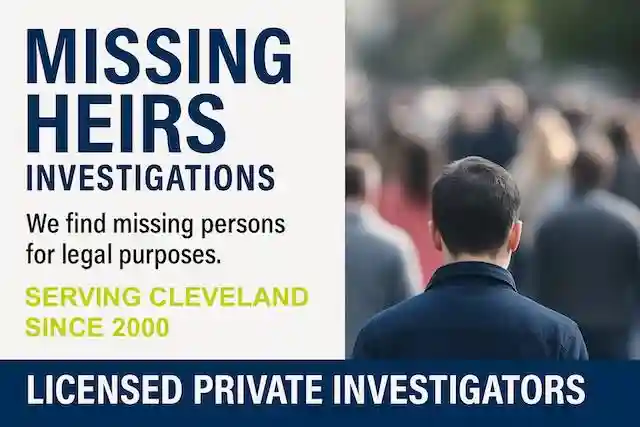In Northeast Ohio, criminal records are an important part of the public record system. However, not everything is available for public viewing, and understanding the difference between public, sealed, and expunged records can help you know what to expect.
What Criminal Records Are Public?
In Ohio, many criminal records are accessible to the public. This includes:
Arrest records
Court dockets
Case filings
Conviction records
You can typically access these records through local courts, such as Cleveland Municipal Court, Cuyahoga County Court of Common Pleas, and municipal courts in surrounding counties like Lake, Lorain, Summit, and Medina. Many courts offer online search portals where you can look up cases by name, case number, or date.
Employers, landlords, and individuals often use these public records for background checks, tenant screening, and other verification needs.
What Happens When a Record Is Sealed?
When a criminal record is sealed, it means that the record still exists, but it is hidden from public view. In Ohio, eligible individuals can petition the court to have their record sealed after a waiting period, depending on the offense.
Sealing a record removes it from:
Public background check results
Online court dockets
Routine employer or landlord screenings
However, sealed records can still be accessed by certain government agencies, law enforcement, and courts under specific circumstances.
What Is Expungement?
Expungement goes a step further than sealing. In Ohio, "expungement" legally means that the record is erased as if it never happened. However, Ohio law often uses "sealing" and "expungement" interchangeably, depending on the context.
Expunged records are:
Destroyed or permanently removed from court files
Unavailable to employers, landlords, and the general public
Inaccessible even to most government agencies, except in very limited cases
Ohio recently expanded eligibility for sealing and expungement, making it easier for individuals with certain non-violent or low-level offenses to clear their records.
How Background Checks Use Public Records
Background check companies typically gather data from public records, including court filings and criminal dockets. If a record has been sealed or expunged, it should not appear in a consumer background check.
However, because data aggregators often pull records quickly and update them slowly, sealed or expunged cases might still show up until the database is refreshed. If that happens, individuals can dispute the background check results under the Fair Credit Reporting Act (FCRA).
When running a background check in Northeast Ohio, it is essential to:
Use reputable sources
Verify the date and status of any findings
Understand that sealed and expunged records are legally off-limits for most uses
Final Thoughts
Accessing criminal records in Cleveland, Cuyahoga County, and surrounding areas can offer important information for employers, landlords, and individuals. But it is equally important to understand the legal protections that exist for sealed and expunged records.
As Ohio continues to expand second-chance laws, more individuals are eligible to clear their records and move forward with confidence. Always ensure you are accessing and using public records responsibly and lawfully.











